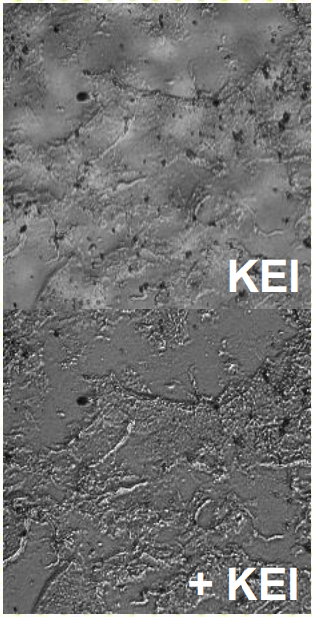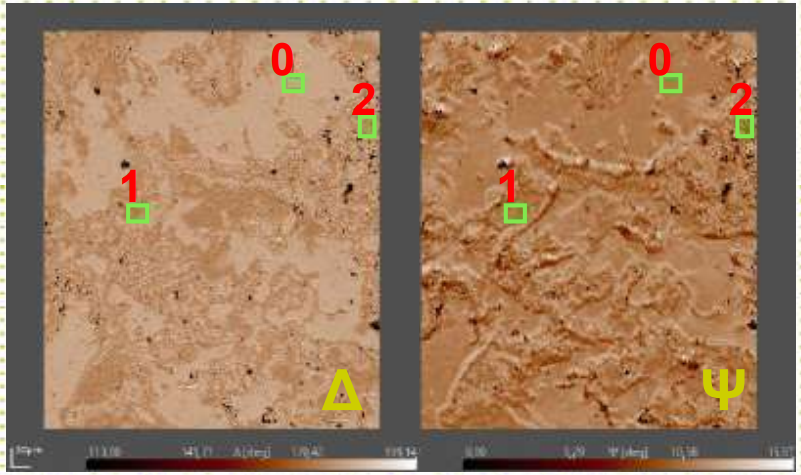Extruded Collagen Fibres Investigated by Imaging Ellipsometry
SAMPLE:
Manufacturing biocompatible surfaces has evolved into a cornerstone for downstream biomedical and pharmaceutical applications. In live tissues the structural and biochemical support for cells is maintained by various secreted extracellular matrix (ECM) components. The ex vivo deposition and network formation of these components on various scaffolds is crucial for subsequent cellular adhesion processes, thus vital for the production of tissue-like implants or effective cell-seeding on prostheses.

Here we focus on collagen, a highly abundant protein and key component of the ECM. The purified protein was extruded through a nanoporous filter, like dough in a pasta machine, and deposited as a drop onto a conventional glass microscope slide1. The sample was a kind gift from the Emmy Noether research group for nanoBiomaterials of Prof. Dorothea Brüggemann2 (preparation by M.Sc. Karsten Stapelfeldt).
SETUP MEASUREMENT:

We used imaging ellipsometry with the nanofilm_EP4 for the analysis of the extruded collagen fibres. A total sample overview covering 2.7 cm2 was generated by the integrated image stiching algorithm combining 1008 single contrast micrographs into one image (left). Backside reflections of the glass slide are suppressed using the unique knife-edge illumination feature (KEI, right). Subsequently regions of interest were selected upon this prescreening and Δ/Ψ maps were recorded spectroscopically from 400 to 760 nm (below).

RESULTS:
Microscopic evaluation of extruded fibres (contact-free) Spectroscopic Δ, Ψ values/maps and ROI evaluation Thickness analysis of the collagen network

Δ and Ψ map @ 400nm

Spectroscopic data evaluation of specific regions of interest
1. Raoufi, M. et al. Template-assisted extrusion of biopolymer nanofibers under physiological conditions. Integr Biol (Camb) 8, 1059–1066 (2016).
2. Emmy Noether research group for nanoBiomaterials – Institute for Biophysics (FB1) – University of Bremen – www.biophysik.uni-bremen.de/start/brueggemann-group
